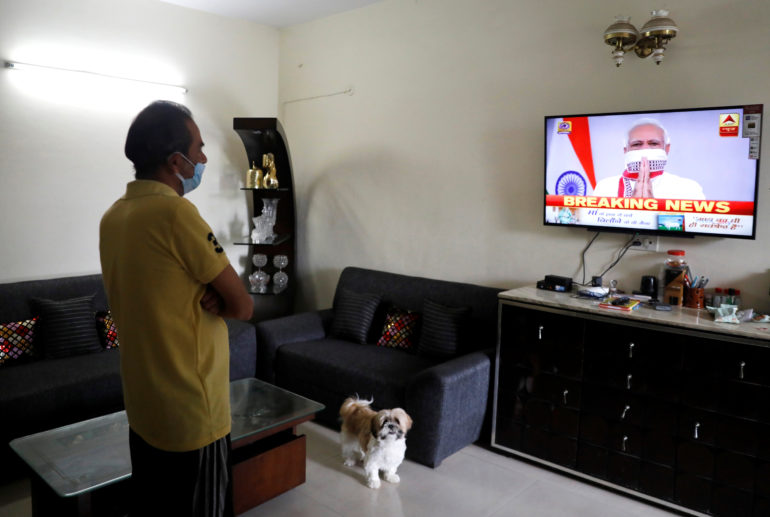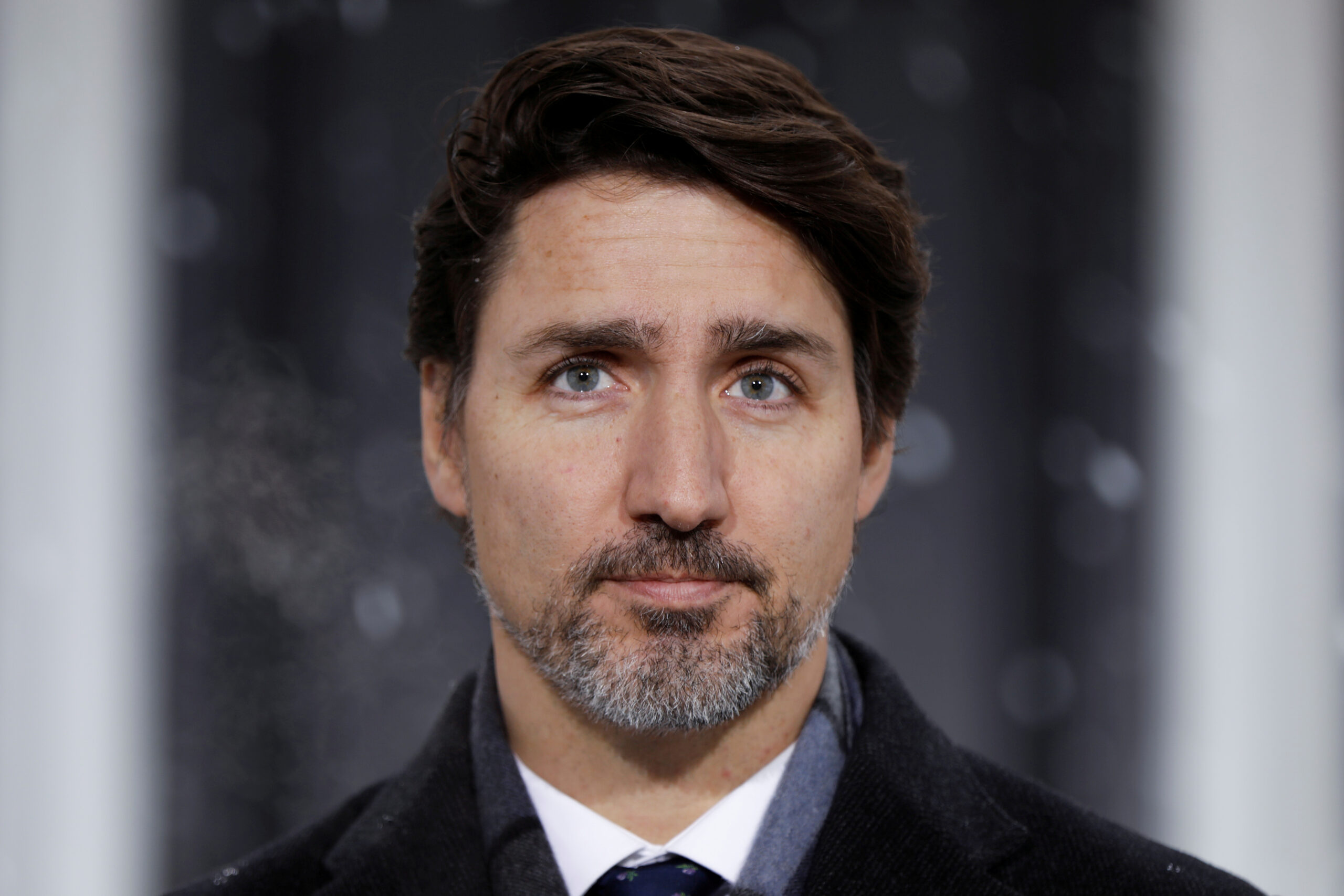Anushka Yadav
Prime Minister Justin Trudeau announced today that it will take weeks for Canada to resume economic activities and reduce restrictions as the government prepares for a post-pandemic plan.
Trudeau announced at his regular briefing at Rideau Cottage in Ottawa that the federal government will also impose strict measures for returning travellers under the Quarantine Act which will be effective at midnight.
He said if asymptomatic travellers cannot explain “a credible quarantine plan, they will be required to quarantine in a hotel for 14 days.”
The prime minister also announced additional support of almost $130 million for the Northern communities to address immediate health, economic, and transportation needs.
In small towns and big cities, from coast to coast to coast, we’re working to make sure you get the help you need – no matter where you live. Today, we’re announcing new investments to support Northern communities as they deal with the COVID-19 pandemic and its impacts.
— Justin Trudeau (@JustinTrudeau) April 14, 2020
The new support comes in addition to the $305 million provided under the distinctions-based Indigenous Community Support Fund on March 18.
The Canadian Food Inspection Agency has been funded with $20 million for strict food inspections and hiring more people on board.
Canada also made progress in rapid testing as it approved an Ottawa-based firm, Spartan Bioscience to produce and distribute a device capable of producing COVID-19 test results within an hour.
“More than 430,000 Canadians have now been tested for COVID-19,” he said. “Demand for these supplies is going up and we’re going to make sure Canada can keep up.”
In addition, he announced receiving a new shipment of PPE including N95 masks last night. The federal government will be shipping 1.1 million masks along with gloves and gowns across provinces and territories.
However, he said Canada will take weeks before reopening the economy. “We will have to do it in phases, we will have to remain vigilant until such a point as a vaccine against COVID-19 is found,” he added.
In Ontario, 28 legislators gathered for an emergency session at the provincial legislature to pass the emergency bill and extend the state of emergency by another 28 days.
The legislators included 14 members of the Progressive Conservative government, eight New Democrats, two Liberals, two Independent members and the House Speaker.
“Students will not be returning back to school on May 4,” he said in his daily press conference at 2 p.m.
Premier Doug Ford also announced that Ontario will launch an action plan for long-term care homes tomorrow due to a rise in coronavirus-related deaths.
He also announced that an emergency order has been issued asking long-term care workers to work at only one facility.
“We must continue to keep non-essential workplaces closed. We must continue to put an iron reign around our seniors. And we must continue to test the most vulnerable and those who care for them,
“We must continue to do everything in our power to prevent our hospitals from being overwhelmed. And the extension of the emergency order allows us to keep doing what’s necessary,” said Ford.
Toronto’s general manager of shelter, housing and support Mary-Anne Bédard confirmed the opening of a facility for Toronto’s homeless community who contract COVID-19.
On the vulnerable homeless, “We were prepared for this unfortunate situation of having cases in shelter system and I am relieved to report that there have not been any COVID-19 deaths among clients.” Toronto medical officer of health Dr. Eileen de Villa said.
Currently, Ontario has 7,470 confirmed cases of COVID-19 with 274 deaths. Canada stands at 12th position with 26,897 confirmed cases and a death toll of 898.
The governor of New York Andrew Cuomo said COVID-19 deaths are starting to level off at close to 800 per day.
New York has 195,031 confirmed cases of coronavirus with 10,056 deaths. The US has 588,300 confirmed cases with a death toll of 24,480 and 44,218 recovered cases.
In India, Prime Minister Narendra Modi extended the nationwide lockdown until May 3 in a televised address. “Till May 3, every Indian will have to stay in lockdown. I request all Indians that we stop the coronavirus from spreading to other areas,” said PM Modi.

A man watches India’s Prime Minister Narendra Modi’s address to the nation on a television announcing the extension of a nationwide lockdown till May 3, to limit the spreading of coronavirus disease (COVID-19), in New Delhi, India, April 14, 2020. REUTERS/Anushree Fadnavis
He also said that the lockdown could be eased in some states for “select necessary activities.”
Currently, India has 10,815 confirmed cases with 353 deaths despite a three-week shutdown.
Elsewhere, Russia’s epicentre of COVID-19 outbreak Moscow introduced a digital tracking system to enforce a lockdown.
The system requires people of ages 14 and above to download a QR code if they want to move around their city. The authorities can fine people for unauthorized movement in the city.
However, Roskomsvoboda, a non-governmental organization that monitors internet freedom in Russia, is criticizing the app for being a map of “digital civil rights abuses.”
Currently, Sweden has 11,445 confirmed cases along with 1,033 deaths.
The streets of Italy and Austria saw a few shops and businesses reopen with strict rules on customer numbers and hygiene.
Currently, Italy has 162,488 confirmed cases of COVID-19 with 21,067 deaths. In Austria, there are 14,119 positive cases with a death toll of 384.
The European Commission urged EU countries to consider relaxing measures gradually and work together in the pandemic.
“The overall world outbreak, 90 percent of cases are coming from Europe and the United States of America. So we are certainly not seeing the peak yet,” WHO spokeswoman Dr. Margaret Harris told a briefing in Geneva.
Harris also said that “we really shouldn’t be expecting to see the vaccine at least for 12 months or longer.”
The global count of coronavirus has reached 1,945,055 with 121,897 deaths and 465,752 recovered cases.

